How to build a bench seat - a step-by-step guide to create your own banquette
Follow our top tips for creating your own banquette-style seating in a dining space


Bench seating, also known as banquette seating, can work wonders for comfortable dining, whatever the size or shape of your room. From bijou kitchen spaces, to larger open-plan dining rooms and even awkwardly-placed nooks, all can benefit from this simple style of seating.
Bench seating can save a whole load of space in a kitchen-diner area, as the table can be pushed much closer to the wall. While traditional dining chairs certainly look smart, they have a much larger footprint and therefore take up more space. So learning just how to build a bench seat, will not only save you money, but precious space too.
Seen in abundance at fancy restaurants and hotels, bench seating typically includes a padded backrest, but this isn't a hard and fast rule. A padded seat is another aspect that is most often included but again, this isn't seen exclusively. When building your own bench seat, you can dictate what elements are included or not, so it's worth doing a little research into banquette seating ideas.
Plus it's super simple to build your own banquette seating too, as our top tips will show you.
How to build a bench seat
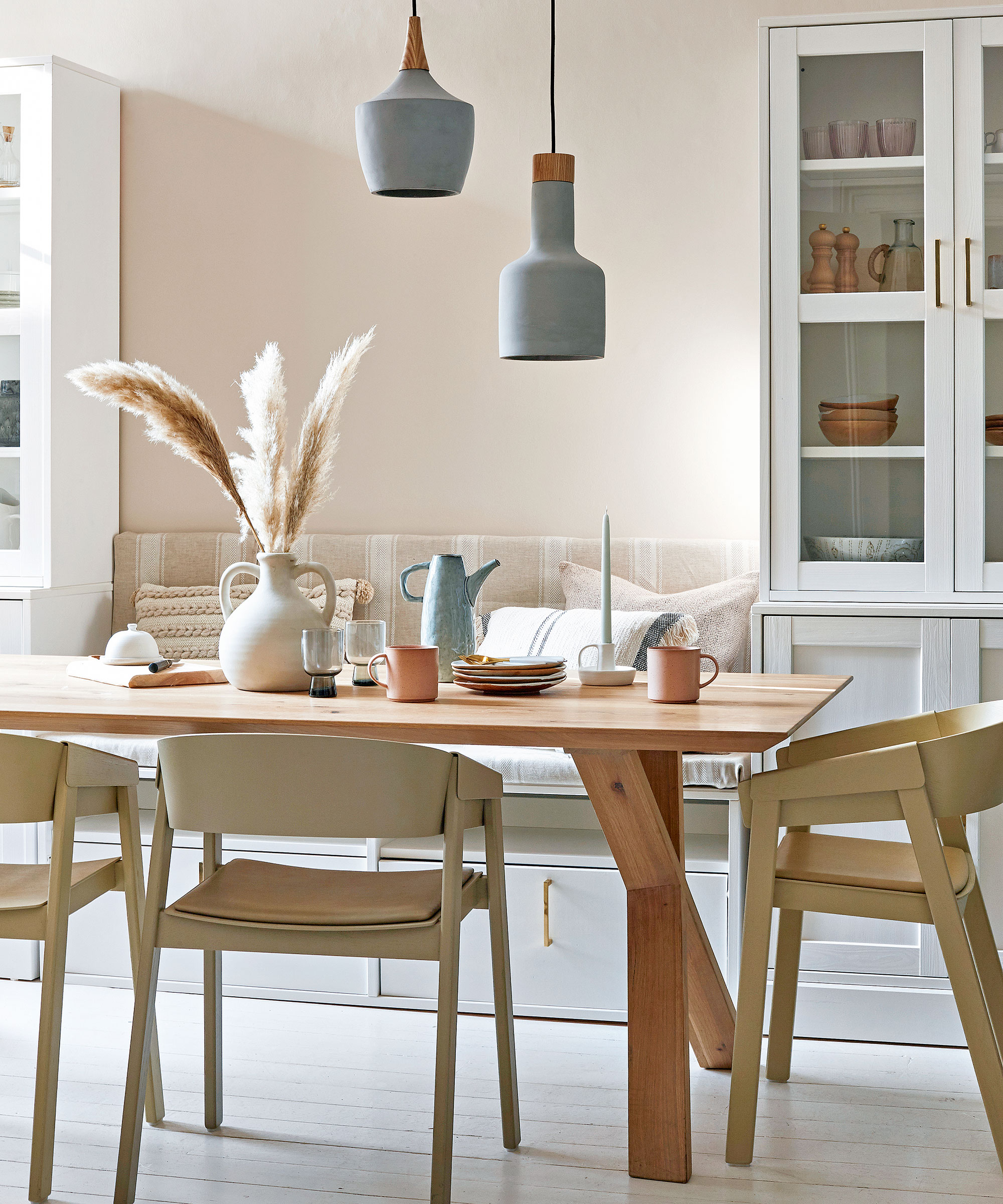
A bench seat is a popular choice in a kitchen-diner, as more often than not, it includes some storage too. Whether this is achieved by building a lift-up seat, or adding drawers below or even open cubbies, ensuring storage is part of your design is a no brainer.
For this guide on how to build a bench seat, we've cleverly turned a simple shelving unit into a smart banquette seating idea, with storage built in too.
What you'll need
- A simple shelving unit
- An upholstered headboard
- Wall brackets, rawl plugs and screws
- Foam seat cushion and scatter cushions
1. Build your shelving unit
A simple shelving unit turned on its side makes an ideal bench seat that's ready to go. Start by building yours according to the manufacturers guide. Below, we've used a Kallax, £37 from Ikea for this Ikea hack as it's super sturdy and has built in cubbies.
Once built, move the unit into place and secure to the wall using brackets attached with rawl plugs and screws.
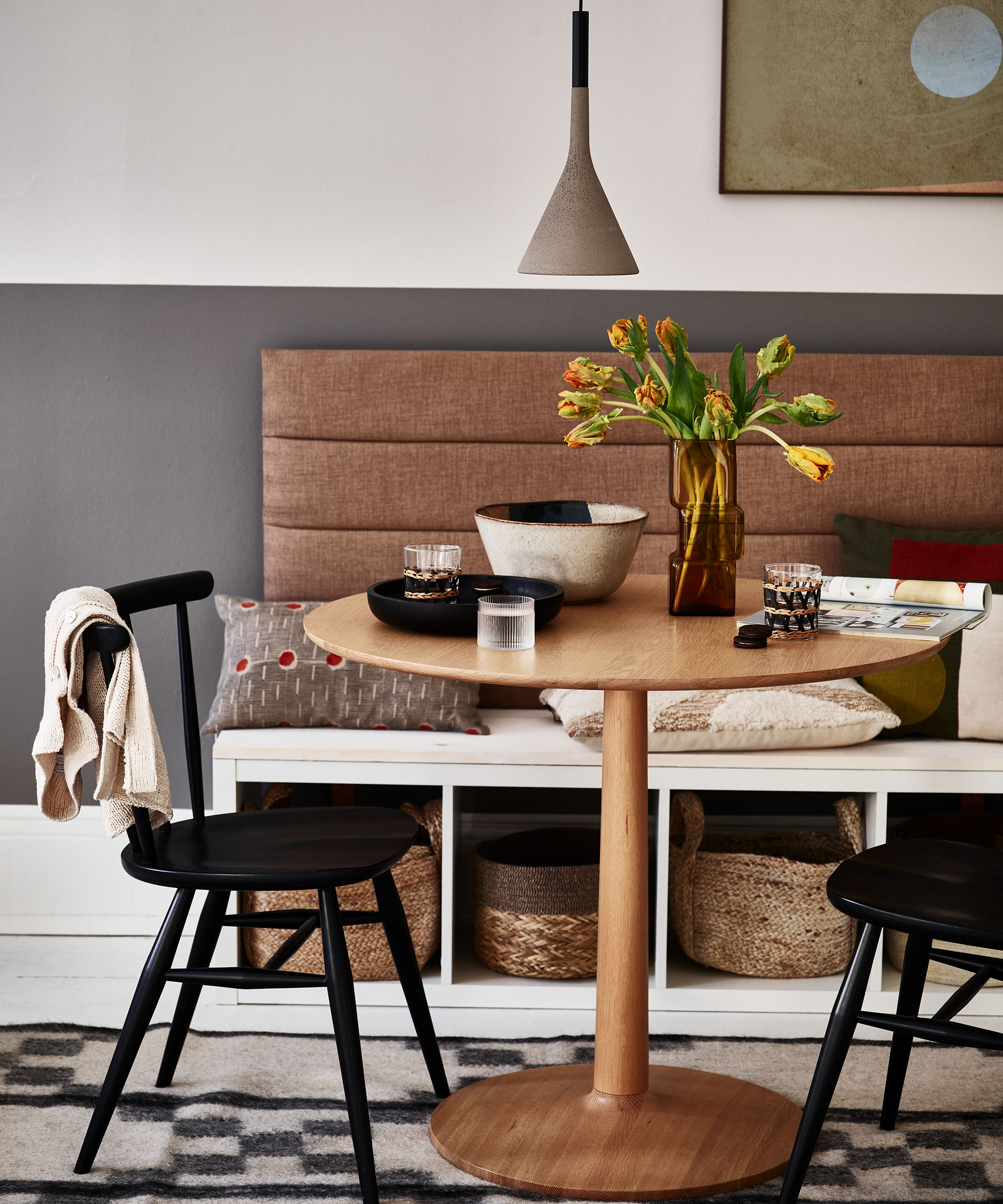
2. Attach your headboard
Next, attach your headboard to the wall, above the unit, fixing into place with more wall brackets and screws. Although we've suggested an upholstered headboard for comfort, you could also opt for a rattan or cane design instead, if this is more in keeping with your decor.
Alternatively, you could make your own cushioned board, by covering a piece of foam-topped MDF with a length of fabric and stapling in place at the back.
3. Add baskets for storage
Woven baskets are great for holding a whole host of bits and bobs from shoes, to toys, cook books and more. Pop one in each cubby hole to create simple storage that's easy to access. Vary the design to add interest but keep to the same material such as rope, wire or cotton.
Alternatively, storage boxes are ideal to hiding away paperwork, dinnerware and games consoles but bear in mind that may get a little scuffed up if kids are swinging their feet while sat at the table.
4. Layer cushions to make it comfy
Finally, for an extra layer of comfort, add a bench cushion to the top, plus a couple of scatter cushions too finish of this kitchen booth idea. If guests are coming for a dinner party that might last long into the evening, extra cushions will ensure they stay comfortable for longer, plus you could also match them to your table linen for a stylish, cohesive look.
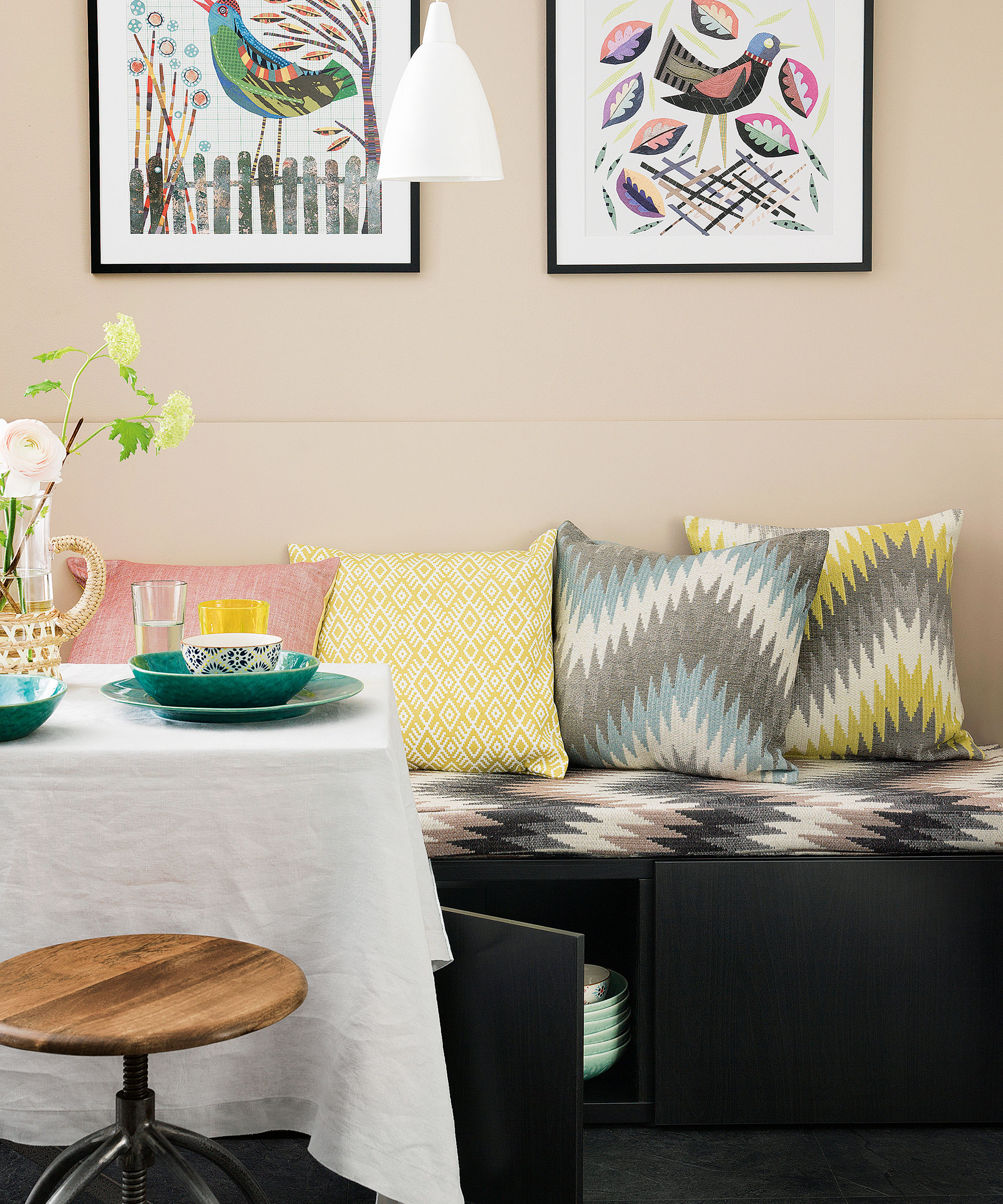
How can I make a cheap bench seat?
While we think our idea to use a shelving, inexpensive unit as a ready-to-go bench seat is a fairly nifty one, you could curb cost even more. For-go the upholstered headboard idea and just top the unit with a simple cushion, or group of cushions instead.
Alternatively, using leftover wood (or wood sourced from second-hand marketplaces or donated from friends) you can build a simple box structure and top this with cushions.
Or even, attach a length of wood to the wall on several heavy-duty brackets, to create a low shelf, that can act as a bench seat for your dining table.
Whatever design you choose, be sure that your wall can take the weight and that the structure can support multiple bums on it too!
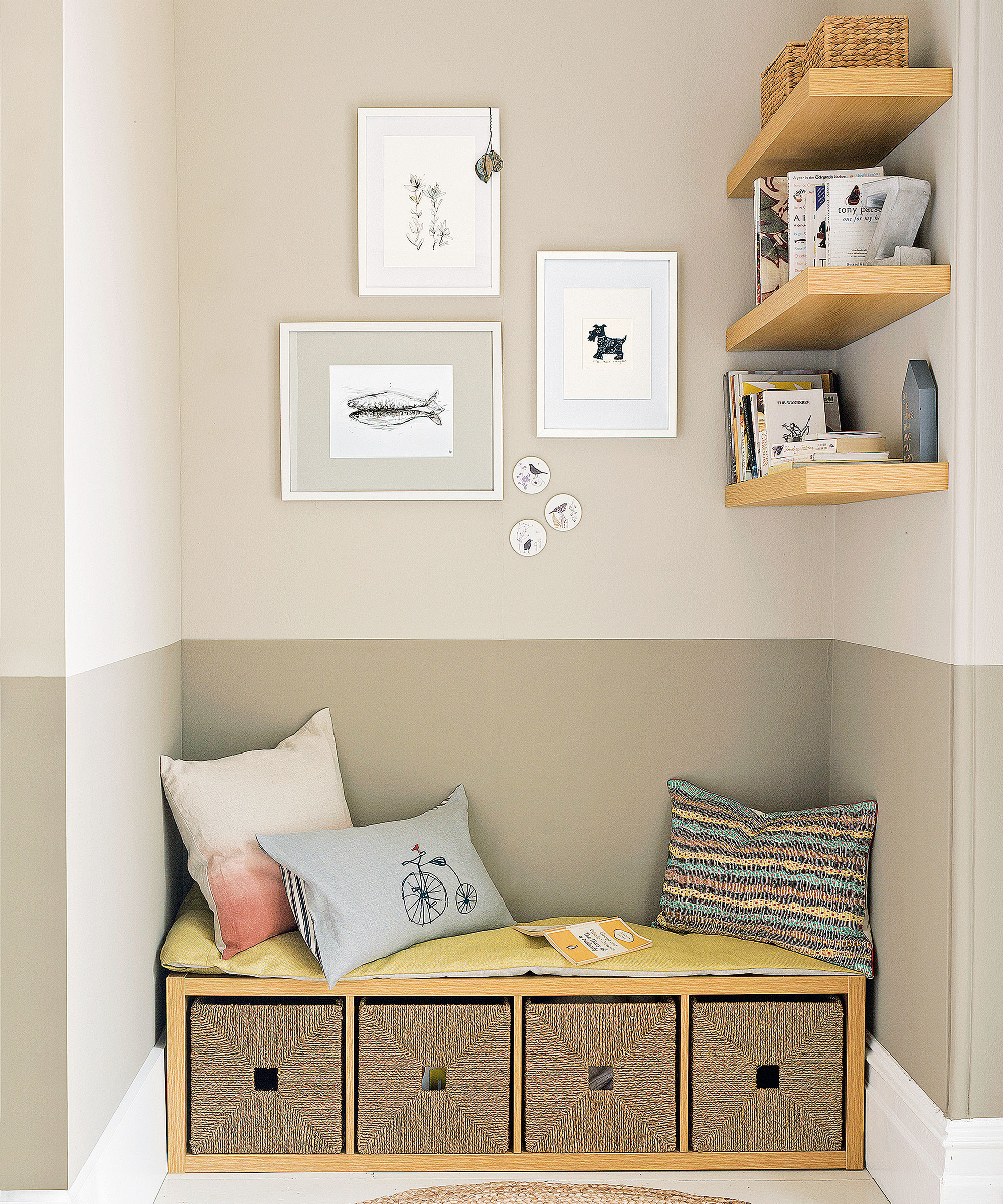
What is a good height for a bench seat?
A good height for a bench seat is one that is similar to your dining chairs, so you know that diners will comfortably reach the table. If you're making a bench seat that will mostly be used by children, you could raise the seat a little higher but only by a couple of centimetres at most.
Bear in mind that all dining tables are at different heights so it's worth measuring yours first to gage what height you'd like your bench seat to be.
Get the Ideal Home Newsletter
Sign up to our newsletter for style and decor inspiration, house makeovers, project advice and more.

Holly Walsh is a freelance Interiors Writer and Shopping Editor, but worked in-house here at Ideal Home for nearly 10 years. With a background of studies in Interior Design, her career in interior journalism was a no-brainer and her passion for decorating homes is still as strong now 15 years after she started, as it ever was. While Holly has written for most of the home titles at Future, including Livingetc, Country Homes & Interiors, Homes and Gardens, Woman & Home and Style at Home, Ideal Home has always been her ideal home, and she can still be found sharing her expertise and advice across both the printed magazine and the website, while also raising her two young children.
-
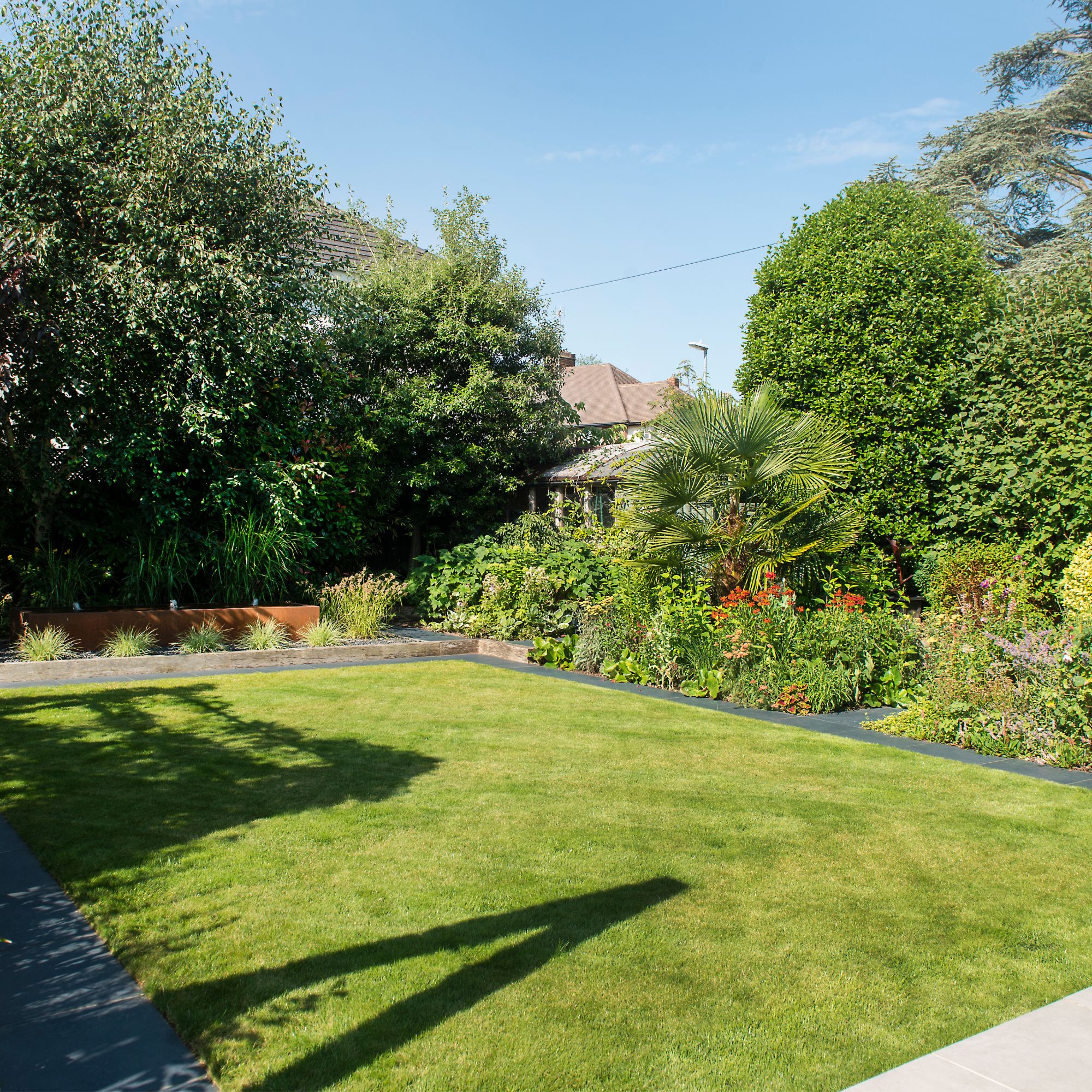 5 reasons why your grass seed isn’t growing and what you can do to help, according to garden experts
5 reasons why your grass seed isn’t growing and what you can do to help, according to garden expertsFor a lush, green lawn, you have to ensure the conditions are just right
By Kezia Reynolds
-
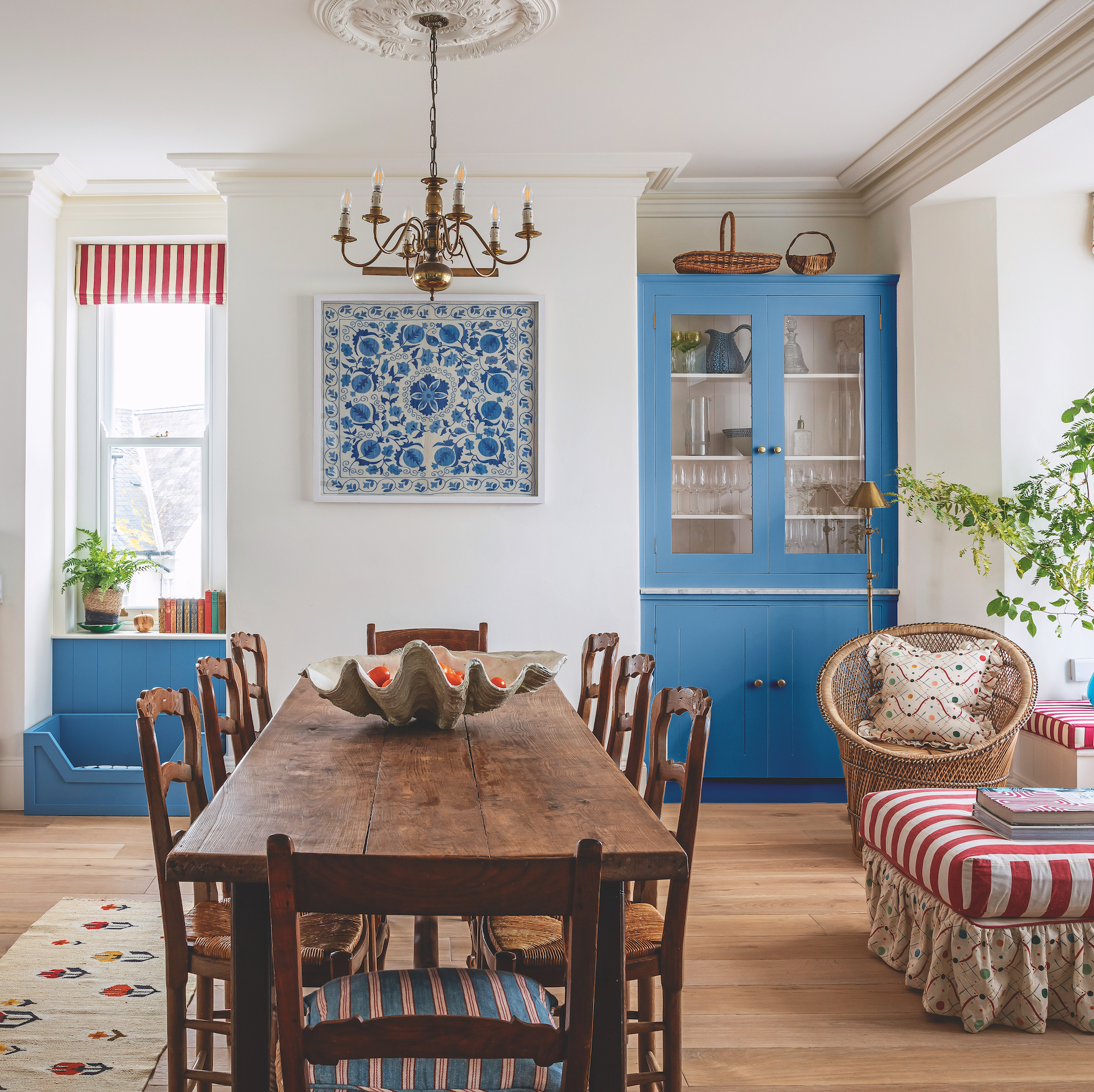 Coastal style gets a cheerful update in this colourful cottage
Coastal style gets a cheerful update in this colourful cottageBright stripes and bold colour blocking make decorating fun
By Sara Emslie
-
 When to sow a clover lawn for an effortless, wildlife-friendly garden – the bees will love you for it
When to sow a clover lawn for an effortless, wildlife-friendly garden – the bees will love you for itYou can get started this month
By Sophie King